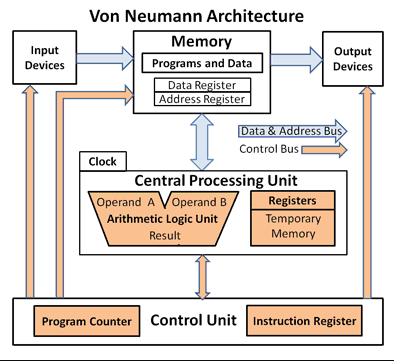
Why Study Computer Architecture? - GCA 001
With the onset of better and efficient technology logic and implementation -performing mathematical computations on hardware level have been becoming increasingly easier.
There is a need to BUILD FUNDAMENTALLY BETTER ARCHITECTURES,
Systems that are :
- Secure
- Reliable
- Safe
The end goal of any research and development of Computer Architectures should result into :
- Energy-Efficient ,
- Low-latency ,
- Predictable Architectures.
Usually, the application of such architectures are well employed in :
- AI/ML
- Genomics
- Medicine / Health
The Transformation Hierarchy
If we consider the entire life cycle from the Problem formulation to the fundamental computations that the electrons do according the instructions provided by the Algos, the programming languages and various system softwares.
Computer architecture can be approached with two views : The narrow View that just includes the primary hardware layer and their interface layer , or the broader , expanded view that takes in account most of System level and device level logic creation.
To achieve the highest possible energy efficiency and performance, it is crucial we take and work with the expanded view of Computer Architectures, we must Co-design across the hierarchy : Algorithms to devices
And Specialize as much as possible : Within the design Goals
Now that we have cleared up what applications and design principles are expected to gain from more thought out computer architectures let's define what exactly we mean by architecture , even though you may have an slight idea about it.
Defining Computer Architecture
It is the science and art of designing computing platforms (Which refers to,hardware, interface, system SW, and programming model)
The architecture aims to achieve a set of design goals,
- Highest performance on earth on workloads X, Y, Z and whatever they may be
- Longest battery life at a form factor that fits in your pocket with cost < $$$ CHF
- Produce the best average performance across all known workloads at the best performance / cost ratio
- And so much more
Designing a supercomputer is different fro designing a smartphone , But, most of the fundamental principles are similar
Efficient Computer architectures :
- Enable better systems : Make computers faster , cheaper , smaller , more reliable etc. By exploiting advances and changes in underlying technology / circuits
- Enable new applications : Life-like 3D Visualization , Virtual reality , Self-driving cars , Personalized Genomics, Personalized Medicine
- Enable Better Solutions to Problems : Software innovation is built on trends and changes in computer architecture , greater than 50 percent performance improvement per year has enabled this innovation .
In Conclusion
Computer is the science and art of designing, selecting, and interconnecting hardware components and designing the hardware / software interface to create a computing system that meets functional, performance, energy consumption, cost and other specific goals.
There still exist problems to creating computer architectures even with such innovative solutions :
- Huge hunger for data and new data-intensive applications
- Power / Energy / Thermal Constraints
- Complexity of Design
- Difficulties in Technology Scaling
- Memory Bottleneck
- Reliability Problems
- Programmablility Problems
- Security and privacy issues
And no clear, definitive answers exists to these problems, which affect all parts of the computing stack.
Industry is in a large paradigm shift towards novel architectures - which have many different potential system designs possible and the computing landscape is very different from a few decades ago.

